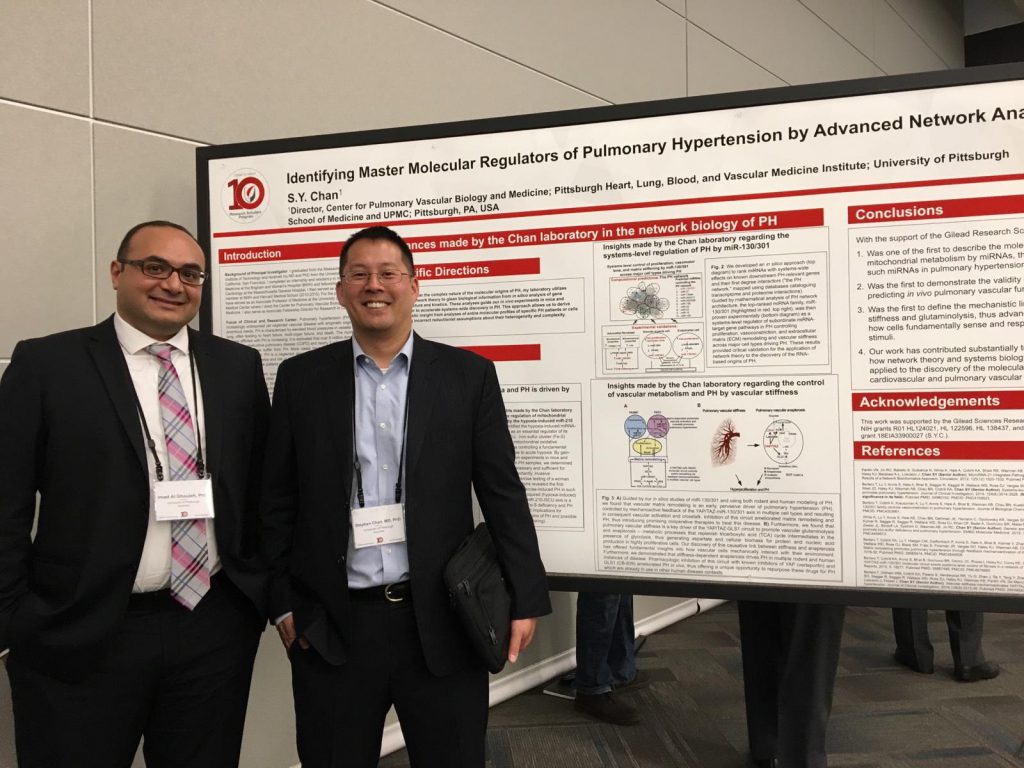Dr. Chan Appointed as New Director of the VMI

On behalf of Mark Gladwin, MD, Professor and Chair, Department of Medicine
It gives me great pleasure to announce the appointment of Dr. Stephen Chan, M.D., Ph.D., as the new Director of the Vascular Medicine Institute beginning January 2020. Steve’s appointment concludes an exhaustive search and thorough review of a highly talented pool of internal and external candidates by an engaged Search Committee. We are indebted to the input and guidance of Dr. Darrell Triulzi who diligently served as Chair of the Search Committee. The Committee and the School of Medicine and UPMC leadership all recognized and appreciated that Steve possesses the passion, acumen, and leadership skills to guide the VMI through a second decade of growth and success.
I personally wish to thank everyone who has partnered with me to build the VMI into a stable and mature research institute of 37 core faculty members, supported by eight centers, and generating more than $12 million in annual research revenue; we are grateful to Vitalant and the Hemophilia Society of Western Pennsylvania for creating a sustained foundation of support allowing the VMI to pursue exciting and innovative basic and translational research.
Steve, who is a tenured Professor in the Department of Medicine, will continue his role as Director of the Center for Pulmonary Vascular Biology and Disease as well as Associate Program Director for Research in the Cardiology fellowship program. Since arriving at the University of Pittsburgh in 2015, he has established an impressive research enterprise that spans basic to translational research in the field of pulmonary hypertension. Capitalizing on the emerging discipline of “network medicine” he employs bioinformatics and computational biology in a systems-wide discovery approach using genetically altered rodent models and human subjects to accelerate translational discovery in pulmonary vascular disease.
Steve is the Principal Investigator of multiple NIH R-level and U-level grants, was awarded an Established Investigator Award from the American Heart Association, has made high impact discoveries, and has nurtured entrepreneurial programs developing novel therapies for patients suffering from pulmonary hypertension. He has received a number of research awards from the American Heart Association, the American College of Cardiology, and Harvard Medical School, including the Lerner Scholarship, the Watkins Discovery Award, the Harris Family Research Prize, the Cardiovascular Leadership Council Award, the Chair’s Prize for Research Excellence, and the McArthur-Radovsky Research Scholarship. Steve was elected to the American Society of Clinical Investigation in 2016, currently serves on five journal editorial boards, is an at-large member of the American Heart Association 3CPR Council Leadership Committee and is a standing member of the Respiratory Integrative Biology and Translational Research NIH Study Section.



